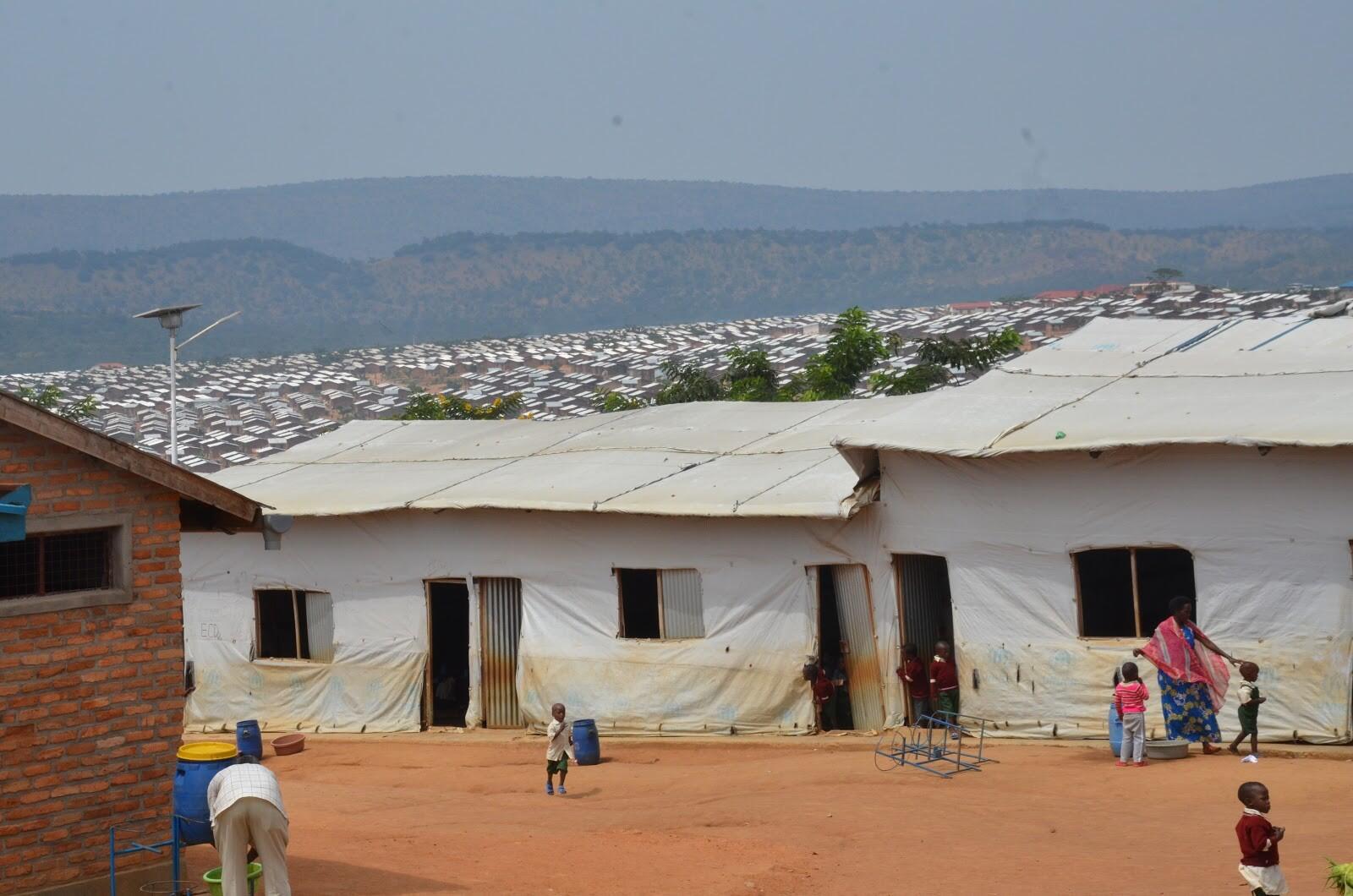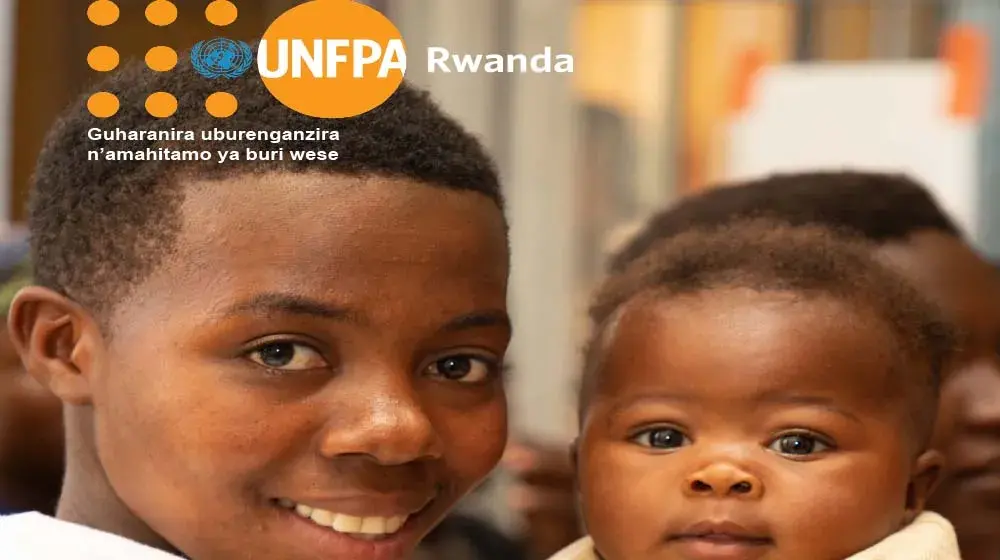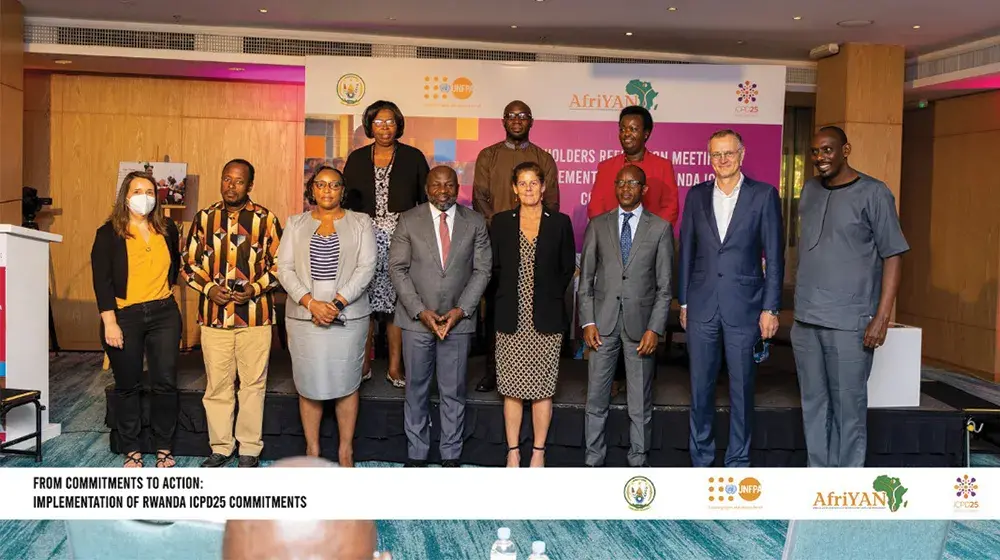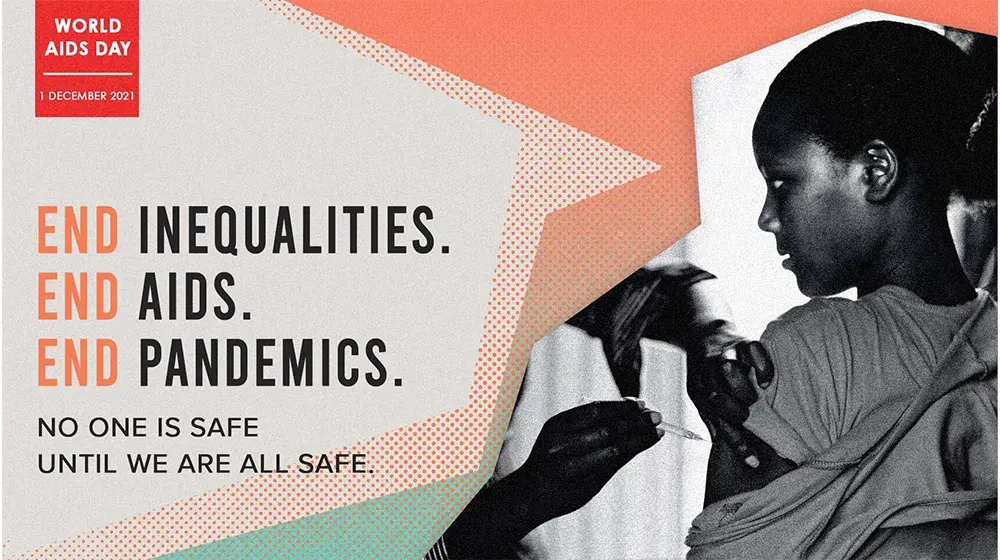Mahama Refugee Camp, one of Rwanda’s six refugee camps, hosts over 60,000 Burundian refugees. Nearly 25% of the total refugee population are adolescents and youth between the ages of 10 and 24 (UNHCR, 2019). Young people, especially girls, who often represent a large proportion of those affected by crises, have complex and diverse needs which greatly benefit from an integrated approach to sexual and reproductive health (SRH) and HIV programmes.
In support to One UN humanitarian interventions in Rwanda, UNFPA has implemented SRH services in Mahama Refugee camp, including family planning and HIV/AIDS counseling and testing, as well as screening and management services for Sexually Transmitted Infections. UNFPA works closely with government, UN agencies and other partners to ensure that reproductive health is integrated into emergency responses, with a particular focus on youth.
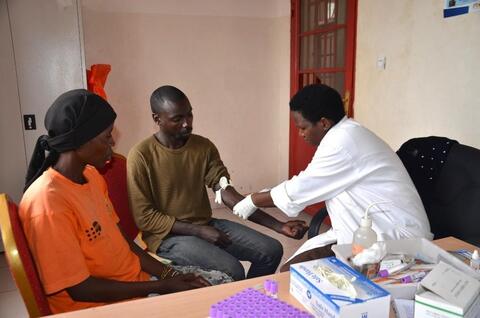
In addition to supporting tailored interventions for young people, UNFPA has initiated three permanent youth friendly centers managed by a full time midwife in charge of adolescent sexual and reproductive health. Since their establishment, more than 4,311 adolescents and young people have used the SRH clinical services. Furthermore, 262,645 male condoms and 78 female condoms were distributed to young people for prevention of HIV/AIDS and unwanted pregnancies.
From January 2018 to June 2019, 611 boys and 782 girls were tested for HIV and 58 boys and 167 girls were screened and treated for STIs. Moreover, a total 431 of adolescent girls used modern contraceptive methods, and 636,724 male condoms and 78 female condoms were distributed. As community health workers distribute condoms throughout the camp (i.e. in toilets and the youth friendly space), adolescents can access them anonymously and free of charge.
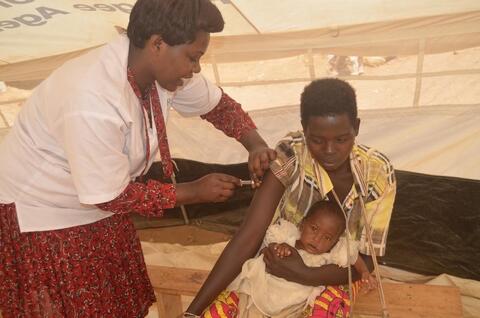
HIV/AIDS and SRH awareness activities include community dialogues, sensitization campaigns, outreach activities through peer educators, mentorship and training of community health workers. As part of these initiatives, 30 First Time Young Mothers have been trained as peer educators to provide information to fellow young people, including on prevention of HIV and teen pregnancies.
“We are pleased with our collaboration with One UN partners and our contribution to restore the dignity of refugees, especially young people in Mahama Camp. With implementing partners such as the American Refugee Committee (ARC), we have conducted awareness campaigns on family planning, maternal health, prevention of Gender Based Violence and HIV, which have resulted in the healthy living of refugee adolescents and young people” Mark Bryan Schreiner, UNFPA Representative to Rwanda.
Upholding the right to sexual and reproductive health care, even in humanitarian and fragile contexts, is one of the five themes of this year’s Nairobi Summit, taking place in November to mark the 25th anniversary of the International Conference on Population and Development (ICPD) in Cairo. The Nairobi Summit will re energize the global community to sustain and amplify gains towards ensuring access to sexual and reproductive health services and an effective global response to HIV, which are key to meeting the Sustainable Development Goals. Within this context, integration of services is a key strategy to achieve longer-term development results, and strengthen the nexus between humanitarian and development interventions to ensure that every young person’s potential is fulfilled.

